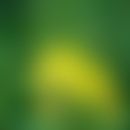DefinitionThis section has been translated automatically.
Naturopathic procedure that is usually used as part of Kneipp therapy for warm (partial) baths. In earlier times, a handful of herbs or an aqueous extract was boiled in the bath and then added to the bath.
In both cases, tanning agents are dissolved which discolor the surface of the enamel and Plexiglas tubs. As tannins are not absorbed and only have an effect on skin diseases (e.g. atopic eczema), total extracts are rarely used today as herbal bath additives. Essential oils and methyl salicylate, on the other hand, are excellently absorbed.
EffectsThis section has been translated automatically.
Essential oils produce a variety of local and systemic effects and are nowadays preferred in herbal bath additives. Commercial products usually contain emulsifiers (necessary for even distribution of the essential oils) as well as colorants that are not medically necessary (promote compliance). Without emulsifiers, essential oils would float on the surface of the water, which could cause irritation on contact with the skin due to the high concentration. Cream, milk and honey are also used as "natural" emulsifiers.
You might also be interested in
IndicationThis section has been translated automatically.
- Stimulation of circulation: rosemary
- Stimulation of circulation/for rheumatic complaints: eucalyptus, rosemary, conifers
- Colds: eucalyptus, thyme, spruce needle
- Sedation and sleep promotion: Lemon oil (= Indian lemon balm oil), lavender, valerian
Certain total plant extracts contain tannins or other anti-inflammatory ingredients and are used for weeping eczema (oak bark extract - see tannin below) and local eczema.
Other bath additives contain fatty oils and are used to moisturize dry skin symptoms: almond oil, peanut oil, evening primrose seed oil. Moisturizing baths should contain as few solubilizers as possible.
Emulsion baths with low bath temperatures run the risk of having a degreasing effect at higher bath temperatures instead of the intended moisturizing effect.
Alternatively, spread baths (no emulsifier), in which a closed layer of fat floats on the surface of the water.
ContraindicationThis section has been translated automatically.
Allergy to the essential oils used, cardiac arrhythmias, hypotension, Cave: infants and young children - essential oils can cause convulsions - cerebral or laryngeal!
LiteratureThis section has been translated automatically.
- Uehleke B et al. (2012) In: André-Michael Beer, Martin Adler [eds] Leitfaden Naturheilverfahren für die ärztliche Praxis, Urban und Fischer Verlag p. 54.
- Beer AM (2005) Inpatient naturopathy handbook for clinic and rehabilitation. Urban & Fischer, ISBN 3-437-56890-6.




